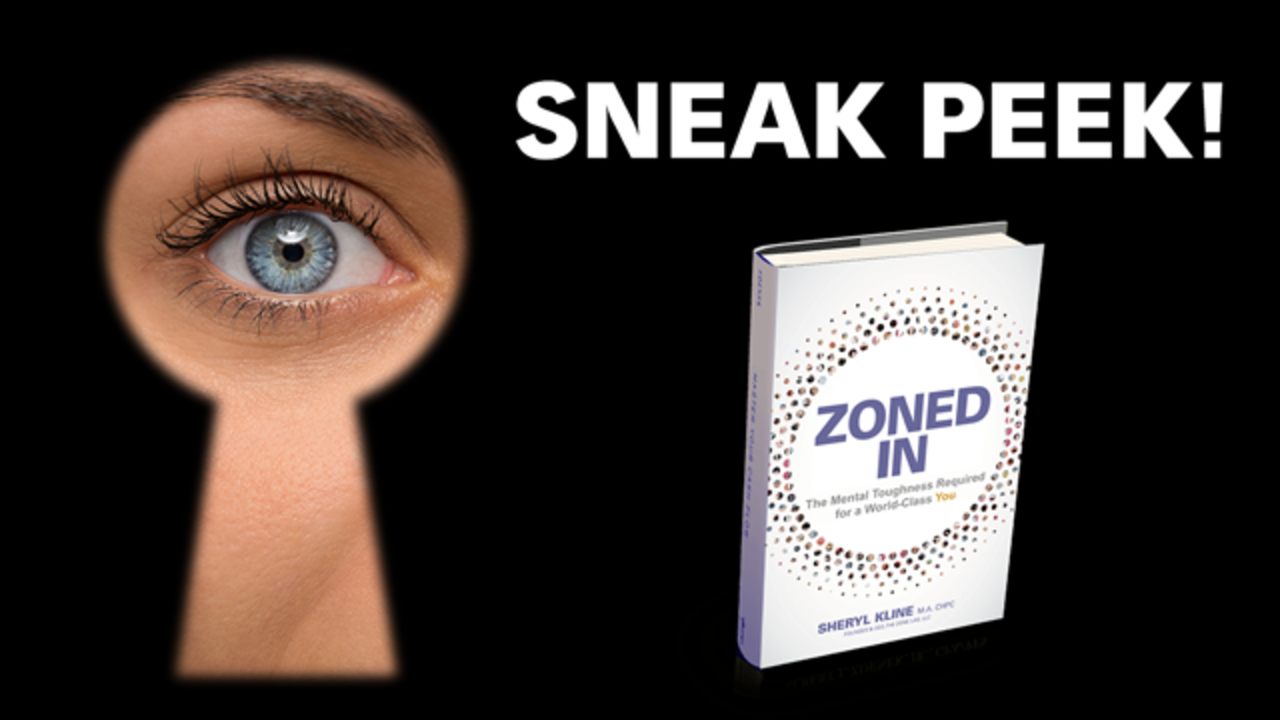The One Thing That Might Be Holding You Back

The One Thing That Might Be Holding You Back
(Scroll below to view the video)
Have you ever felt like you wanted something, but maybe you weren’t good enough?
Not smart enough... or not capable enough... or not courageous enough to speak up and take consistent action towards what you wanted and deserved?
Sometimes there are life experiences that define us until we look them in the face and learn the tools to use them to our advantage... and not to our detriment. Until then, we may not be living up to our potential and the joy that comes along with doing our best.
That certainly was me...
When I was 9 and in the fourth grade, I sat between my parents during a meeting with the ‘headmaster’ (principal) of the competitive private school I attended in Oakland, California. I remember being curious why I had to participate in this meeting, and what I had done. Usually when parents have to go to school, it’s not good news. Strange I thought, because I was an ‘easy’ kid who always worked ...
Make Consistent Progress: 4 Tips to Choose and Work with an Accountability Buddy

Make Consistent Progress: 4 Tips to Choose and Work with an Accountability Buddy
(Scroll below to view the video)
World-class athletes and business professionals do not achieve and maintain greatness alone, and neither can you. Accountability is one way you can set yourself up for consistent progress on your march towards your Olympics.
So how do you choose the right peer, friend, or colleague as an accountability buddy?
Well, they should be:
- More experienced than you (ideally)
- Have your best interests at heart
- Not in competition with you in any way
- Not threatened by you
It’s also important to take care of some housekeeping early on. Here are four important things to discuss prior to getting started with an accountability buddy:
- Be explicit about what is important to you, what you are committed to doing, and what help you are hoping for. If you ask someone and they aren’t fully on board, that’s okay. Thank them for their honesty and for co ...
Sneak Peek: An Exercise From My Upcoming Book "ZONED-IN: The Mental Toughness Required for a World-Class YOU"

Sneak Peek!
An Exercise From My Upcoming Book "ZONED-IN: The Mental Toughness Required for a World-Class YOU"
(Scroll below to view the video)
I am SO excited to share a sneak peek from my upcoming book, "ZONED IN: The Mental Toughness Required for a World-Class YOU!"
The content of the book was inspired in part by your questions, input, struggles and triumphs. My intention for ZONED IN is to be a mindset guide, manifesto and call to action, so it empowers you to take even more consistent bold action towards whatever is most important right now (your personal Olympics.)
The book starts with an exercise in reflection using the "Ambition Checkpoint Questionnaire."
Email me what you think. I welcome all comments or questions.
CHAPTER 1, SECTION 2: GET TO KNOW YOURSELF
Celebrate! Celebrate the process and the commitment of learning how to refine your clarity, believe in your ambitions, and use your thoughts and emotions in a way that will champion your momentum and joy. Are y
...
Are You At An Ambition Checkpoint?

"Are You At An Ambition Checkpoint?"
I had a conversation with one of my oldest and dearest friends recently that at first struck me as odd. She asked, "Do you ever feel like a plastic bag, drifting through the wind wanting to start again...?" I recognized that was the opening lyrics to Katy Perry’s song Firework. She was off. Not her present, fun, happy, and courageous self. It was strange, because she’s so accomplished. She had raised happy, productive, and conscientious kids. She worked doing what she loved. She had a few half-marathons under her belt, and she had a loving family and friends. After many conversations, I finally understood.
She was at an ambition checkpoint.
Her kids needed her less, and she felt like there was more of her to give to her career. More people to serve and a legacy to create. It was inaction that made her feel she was off-purpose... like a plastic bag drifting through the wind. She was being blown around by her days, by her old routine, by other peo...
The Contribution (and Cost) of Inaction

"The Contribution (and Cost) of Inaction"
My dad used to always say "There are no guarantees except death and taxes."
Growing up, that saying made no sense, but now it does. When world-class athletes set their sights on the Olympics, there are no guarantees they will make it... none the less win a gold medal.
I’ve had the opportunity to ask Olympic hopefuls and former Olympians what it was like the moment they decided to go for it. To go "all in."
All of them said essentially the same thing.
"It was like tunnel vision."
"I decided, and there was no turning back."
They had zero excuses on their quest to be the best. What about us on our quest to be our best?
Maybe you have reached a personal Olympics or maybe you have not. Before effectively moving forward, it’s time to gain an important perspective and peace on past inaction.
If you are like most people (me included), you have started and stopped something important to you. Something that you knew would complete you. Something...
What Happens When Smart People Think Stupid

"What Happens When Smart People Think Stupid"
Is it possible that you have everything it takes to achieve what you yearn for and what, I believe, is already rightfully yours? Maybe the reason why you have not achieved the level of success you want and deserve is because of the limitations you place on yourself.
I know that was the case for me up until three years ago. How could I go from having a thriving yet (very) small private practice to helping thousands? To help the masses refine their clarity and gain the mindset required to reach their potential, to arrive at their Olympics? Who would listen to me and find value in what I had to say at Fortune 500 companies in San Francisco, Silicon Valley and globally? I consider myself as a relatively smart person, but that was sure stupid thinking.
Companies like Google Ventures, Autodesk, CapitalOne, Bank of America, and VMware (to name a few) have listened the last couple of years. Up next, a national podcast tour for my upcoming book, ...
What to Say to Yourself When You Fail

"Non-negative thinking sets the best apart from the rest."
If you're human, you will experience failure. Period.
Serena Williams experienced a huge failure in the Miami Open a couple months ago, an early exit in round 1.
Unheard of, right? Not really. She was a new mother, not back in her best shape, and it was her first tournament since the birth of her daughter.
We fail too. Maybe we lose a competition, a prospect says no, a presentation goes south, or we get rejected after a promising (so we thought) interview.
According to Dr. Martin E.P. Seligman, founding father of the new science of positive psychology, there is a power in positive thinking, but it "pales in comparison," says Seligman "to the importance of what we think after we fail." Our “non-negative” thinking sets the best apart from the rest.
Serena, packed up after the Miami Open, understood that she did not in fact fail. She needed more time to prepare. She was optimistic about her ability to come back, and vowed to...
Mental Toughness Secrets from 2X Olympian Mariya Koroleva

(Photo source: PAC 12 Networks and Stanford University Athletics. Scroll to the bottom to view the video interview.)
Have you ever been told that you will never improve, or you are not a good fit?
After the London 2012 Olympics, Mariya Koroleva thought she would be in serious consideration for the next Olympic team in 2016, but she was not. Mariya was told she was too old (at 23) and that she did not fit into the team that was being considered which would be much younger.
She had a choice: 1. Give up on a second Olympics 2. Go for it and train for another year with no guarantees of being placed on the team.
Mariya went for it.
She felt in her gut that the world had not seen the best of her, and she had not seen the best of herself. Mariya did not want to have any regrets. She’d commit to being "all in" for that year before the decision for the next Olympic team was made. Mariya felt that if she gave 100% and still did not make it, then she could be at peace that she gave her best....
1 World-Class Secret to Build Confidence Over the Long Haul

(Scroll to the bottom to view the video.)
I saw Serena Williams play an exhibition match in Los Angeles when she was only 11 or 12 years old. Looking back, I wonder if she realized that she would be the named best player in the open era and have earned more than 22 Grand Slam titles! Not to mention all of her other unimaginably successful endorsements and businesses. Maybe not down to those exact details, but she did work every day believing her day would come, and believing it was possible.
It’s that unwavering belief in ourselves that allows us to dream big and persevere.
When it comes to our long-term objectives it’s important that we “proceed as if success is inevitable” (my favorite quote, BTW), hold on to our dream, and then relinquish control of the outcome. You, like Serena Williams early in her career, have little to no control of the scale of your future success. There are many unknowns:
- What will the competition be like?
- What setbacks will you have?
- What obstacles w ...
How to GAIN CLARITY for Your Next Big Move

(Scroll to the bottom to view the video.)
Sometimes our dreams and aspirations are a little mismatched with our efforts.
Full transparency... I was called out on this one by my mentor this past January. Don’t get me wrong I was working hard and extremely busy. There was something missing when it came to how I was approaching my next level of success. I had next-leveled my ambitions, but how I spent my time was the same. My ambitions were not aligned with the next level of success I wanted (and knew I deserved.) This worked for a while, but the next level would require me to "go pro."
Once I made the necessary adjustments and fine-tuned some key habits, that’s when the next level was attainable.
We’ve talked about where you fall on the ladder. But what are your current circumstances now, and what level of commitment are you willing to have?

- Pro: You are actively taking action to become the person you want to be, and you are remarkably consistent.
- Proficient: Maybe you are cons ...



